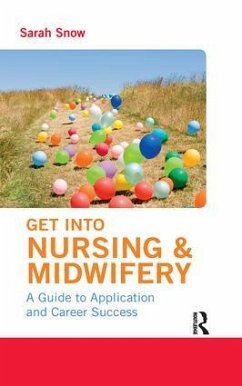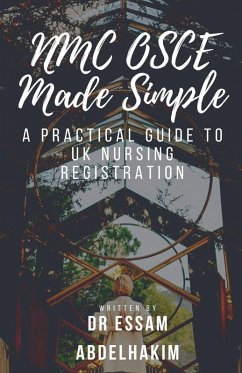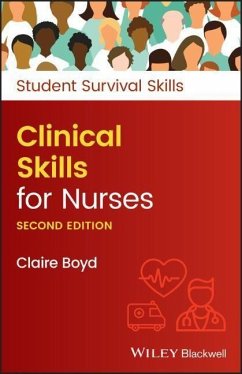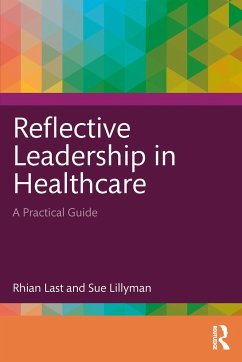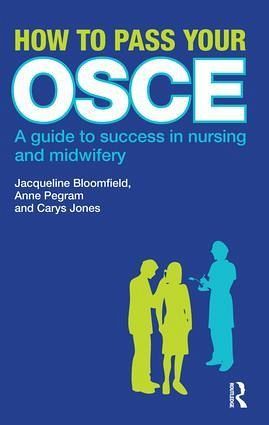
How to Pass Your OSCE
A Guide to Success in Nursing and Midwifery
Versandkostenfrei!
Versandfertig in 1-2 Wochen
193,99 €
inkl. MwSt.
Weitere Ausgaben:

PAYBACK Punkte
97 °P sammeln!
The Objective Structured Clinical Examination (OSCE) was developed for all undergraduate nursing programmes, with the aim of emphasising the need for nursing students to be competent in clinical skills, to assess clinical reasoning skills and as a means of standardizing the assessment process. This practical, easy to read and interactive study guide helps nursing and midwifery students at all levels to maximise their chances of success with OSCEs. It features case studies, quick quizzes, recap and recall summaries and an OSCE preparation plan; all of which help to prepare the student for the e...
The Objective Structured Clinical Examination (OSCE) was developed for all undergraduate nursing programmes, with the aim of emphasising the need for nursing students to be competent in clinical skills, to assess clinical reasoning skills and as a means of standardizing the assessment process. This practical, easy to read and interactive study guide helps nursing and midwifery students at all levels to maximise their chances of success with OSCEs. It features case studies, quick quizzes, recap and recall summaries and an OSCE preparation plan; all of which help to prepare the student for the examination. Hints and tips on what to expect during the examination and pointers on what the examiner will be looking for, together with a comprehensive chapter on personal learning will help to guide the student through the process and maximise their chances of success! "Very readable with useful tips and information for students" Cath Hill, Keele University "I found the book extremely relevant from the students' perspective, reader friendly and well structured. Quizzes and activities excellent." - Liz Day, Senior Lecturer, Nursing and Health Care Practice, University of Derby "A useful and easily digested text on this important assessment strategy", Ms. Karen Lumsden, Faculty of Nursing and Applied Clinical Studies, Canterbury Christchurch University "Useful for students as they prepare... Easy to read and understand." Kirsty Wedgbury, Faculty of Health and Community Care, Birmingham City University





